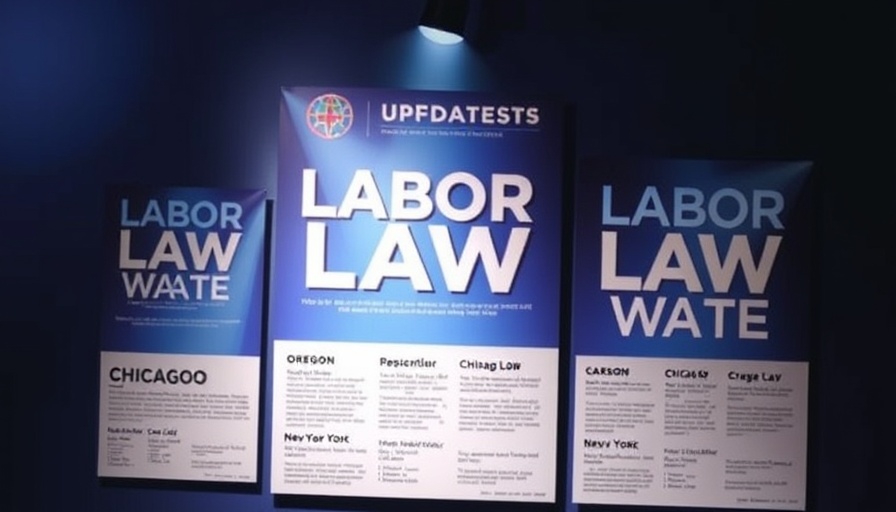
The Dilemma of Vaccination Refusal in Employment
The recent case of a Red Cross employee who was terminated for refusing to get vaccinated due to religious beliefs raises pressing questions about workplace policies and employee rights. As companies navigate the complexities of health regulations, the balance between protecting the workforce and respecting individual beliefs is becoming a pivotal issue for HR professionals. This case could set a precedent for how religious exemptions are interpreted under current labor laws.
Understanding Employment Regulations
HR compliance officers must be well-versed in employment regulations and the EEOC guidelines which govern employment practices. Although employees have the right to refuse vaccination on religious grounds, companies are also obligated to maintain a safe working environment. Understanding how to navigate these regulations is key to avoiding potential legal pitfalls.
Factors Influencing Workplace Policies
The increasing trend of emphasizing pay transparency and non-discrimination hiring practices calls for a comprehensive review of how remote work policy or vaccination mandates fit within corporate culture. Employers are increasingly held accountable for creating an inclusive environment that respects diverse beliefs while ensuring the safety and productivity of their employees. This dual responsibility can complicate the policymaking process.
Intersection of Health Policies and Employee Rights
The dynamic tension between health directives and employee rights necessitates clear communication and policy updates. With the likelihood of continued COVID-19 variants and ongoing debates over vaccination, human resources departments must remain vigilant in adapting their strategies to comply with changing labor laws. Moreover, these institutions should proactively engage employees to understand their concerns better and refine their policies accordingly.
As organizations consider the implications of such cases, those involved in HR compliance and public policy must approach these discussions with knowledge and sensitivity. Engaging in ongoing training and policy review will be essential for navigating the evolving landscape of employee rights and workplace safety.
 Add Row
Add Row  Add
Add 




 Add Row
Add Row  Add
Add 

Write A Comment